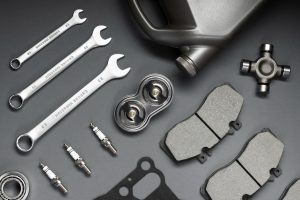A vehicle’s fuel pump is crucial for delivering fuel from the tank to the engine, ensuring the engine runs smoothly. However, like any mechanical component, both electric fuel pumps and mechanical fuel pumps can fail over time. Recognising the symptoms of a bad fuel pump can prevent further damage to your vehicle and avoid costly repairs. In this blog, we’ll explore the common signs of a failing fuel pump, the reasons behind these symptoms, and what you can do to address them.
Common Symptoms of a Bad Fuel Pump
Understanding the symptoms of a bad fuel pump is essential for timely intervention. Here are the most common signs that your fuel pump might be failing:
- Whining Noise from the Fuel Tank: A high-pitched whining noise from the fuel tank often indicates a failing fuel pump. Normally, the pump emits a low hum, but a loud whining suggests a problem, such as low fuel or contamination in the tank.
- Difficulty Starting the Vehicle: If your vehicle struggles to start or requires multiple attempts to crank, the fuel pump may not be delivering enough fuel to the engine. This can be due to a loss of fuel pressure in the pump, which is crucial for starting the engine.
- Sputtering Engine: A sputtering engine, especially at high speeds, can be a sign of an inconsistent fuel supply. This occurs when the pump fails to provide a steady stream of fuel, causing the engine to hesitate or misfire. A clogged fuel filter can also cause similar symptoms by restricting fuel flow to the engine.
- Engine Stalling: An engine that stalls unexpectedly, particularly when the vehicle is under stress (such as climbing hills or towing), may be suffering from a failing fuel pump. The pump might not be supplying enough fuel to maintain engine operation.
- Power Loss: If your vehicle loses power during acceleration or when driving uphill, it could be due to a faulty fuel pump. The engine requires more fuel under these conditions, and a failing pump may not meet the demand.
- Surging Power: Conversely, if the pump delivers too much fuel, you might experience power surges. This results in sudden increases and decreases in speed without any input from the driver.
- Decreased Fuel Efficiency: A bad fuel pump can lead to poor fuel efficiency in the fuel pressure gauge. If the pump sends excess fuel to the engine, it results in wasted fuel and more frequent trips to the gas station.
- Dead Engine: In severe cases, a completely failed fuel pump will prevent the engine from starting altogether. Without fuel reaching the combustion chamber, the engine cannot run.
Causes of Fuel Pump Failure
Fuel pump failure can arise from various issues, including:
- Wear and Tear: Over time, the components of the fuel pump can wear out, leading to decreased performance and eventual failure.
- Contaminated Fuel: Dirt and debris in the fuel can clog the pump, reducing its efficiency and causing damage.
- Overheating: Running the vehicle on a low fuel level can cause the pump to overheat, as the fuel acts as a coolant for the pump. The gas tank plays a crucial role in this process, as it houses the fuel that cools the pump.
- Electrical Issues: Problems with the electrical connections or the fuel pump relay can disrupt the pump’s operation.
Preventive Measures and Solutions
To extend the life of your fuel pump and avoid the symptoms of failure, consider the following preventive measures:
- Regular Maintenance: Schedule regular inspections and maintenance for your vehicle’s fuel system. Regular inspections can help identify issues with your vehicle’s fuel pump before they become severe. Replace fuel filters as recommended to prevent clogs and ensure a clean fuel supply.
- Quality Fuel: Always use high-quality fuel from reputable sources to minimise the risk of contamination.
- Maintain Adequate Fuel Levels: Keep your fuel tank at least a quarter full to prevent the pump from overheating and ensure consistent fuel delivery.
- Prompt Repairs: If you notice any symptoms of a failing fuel pump, seek professional diagnosis and repair immediately to prevent further damage to your vehicle. Timely fuel pump replacement can prevent further damage and ensure reliable vehicle performance.
When to Seek Professional Help
If you experience any of the symptoms mentioned above, it is crucial to consult a professional mechanic. A qualified technician can also explain the differences between mechanical and electric fuel pumps, helping you understand the specific needs of your vehicle. A qualified technician can perform a comprehensive inspection to determine if the fuel pump is the root cause of the problem or if other components, such as the fuel filter or fuel lines, are contributing to the issue.
Conclusion
Recognising the symptoms of a bad fuel pump can save you from unexpected breakdowns and costly repairs. By understanding these signs and taking preventive measures, you can ensure your vehicle runs smoothly and efficiently. Regular maintenance and prompt attention to any issues will help keep your fuel pump—and your vehicle—in optimal condition.



